The Educare Centre caters for about 93 babies, toddlers and children and has 17 staff members.
There are six class groups.
We believe that children learn through play. Children are encouraged to experiment and form concepts. Teachers create a challenging learning environment that is conducive to exploration, investigation and questioning. The programme is specifically designed to develop the whole child (emotional, social, physical, intellectual and cultural).
Under three
The under-three-year-olds are divided into three age groups and are separated from the older children.
Three to 12 months
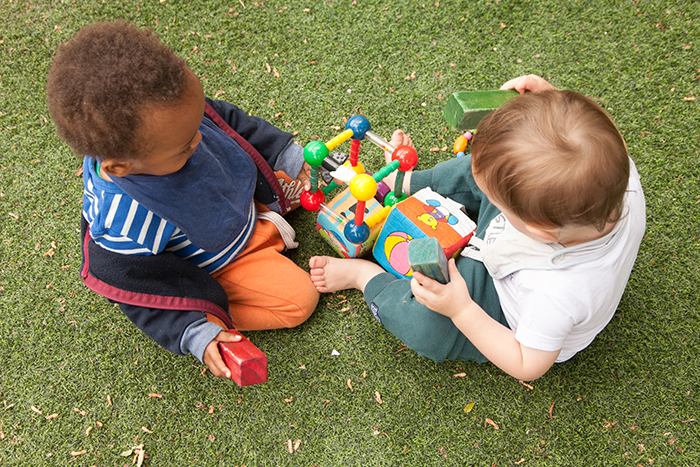
The nursery staff will follow the routine of the baby.
Mothers are encouraged to continue breastfeeding their baby. You may visit your baby throughout the day to breastfeed. You may also express milk which can be stored in the refrigerator for later feeding.
The nursery staff creates a warm, caring and secure environment which will enable the babies to develop a sense of trust.
The nursery staff provides opportunities for babies to:
- sit, move around on their stomachs, crawl, and walk
- turn their head to watch moving objects and listen to sounds
- explore by reaching out to grasp objects
- pick things up and lift objects to find a hidden objects.
Auditory stimulus at this stage is very important. The nursery staff's voices are an important tool. The babies are also exposed to music.
12 to 18 months & 18 to 24 months
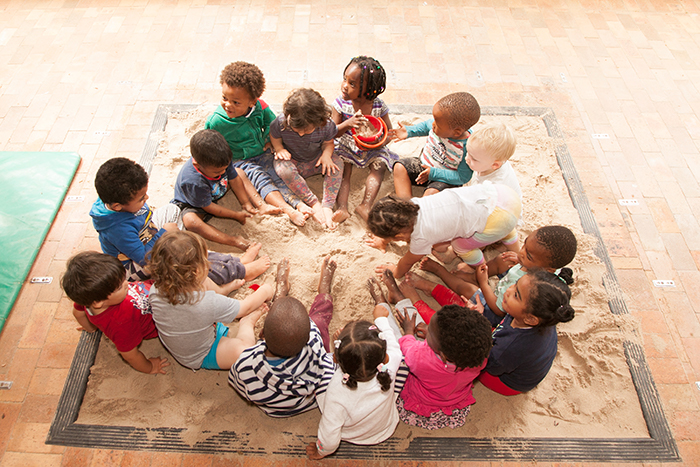
The one- to two-year-olds follow a daily programme.
The nursery staff aims to provide stimulation through a range of activities which will help toddlers to:
- understand words
- listen to stories being read and told
- turn the pages of a book
- recognise objects in books and point to them
- recognise and name parts of the body
- stack blocks
- build tower of at least three block
- sing and move to music.
The toddler's fine motor skills are developed by participating in activities that involve the use of the hands and fingers. These include manipulating objects, tearing, drawing and working with play dough. Using different textures can enhance the sensitivity of the hands and fingers.
During this stage of development, the toddler is encouraged to do things independently, such as drinking and feeding, even if it creates lots of spills.
The toddler's gross motor co-ordination is also developed through outdoor activities that involve the use of the large muscles. This includes climbing onto and off the jungle gym, pushing and pulling wheel toys, climbing inside, outside, under, over, between, behind, etc.
Two- to three-year-olds
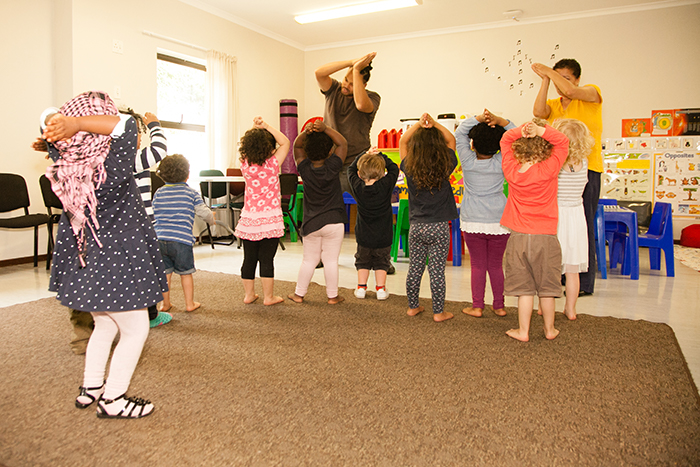
In the two- to three-year-old class, greater independence is encouraged by providing opportunities for children to use the toilet and eat meals by themselves.
They are also encouraged to dress and undress themselves.
The teacher encourages the children to express themselves and communicate their needs.
The children start the day with morning discussions which focus on days of the week, weather, news and theme work.
Various learning areas encourage complete cognitive development and, most importantly, small and large muscle skills, including:
- cutting and pasting
- drawing
- painting
- play dough
- puzzles
- book corner
- block-building
- fantasy play
- music and movement
- stories being read and told.
The daily programme helps to structure the day.
Preschool section
The preschool section is divided into two age groups (three- to four-year-olds and four- to five-year-olds). Each class has a dedicated, qualified teacher and an Assistant Preschool teacher.
Each week a different theme is introduced, starting with the familiar and working towards the unfamiliar. The learning programme is divided into a resource room for literacy, numeracy and life skills and an art room with art and culture work stations. The teachers rotate responsibility (resource and art and culture) on a weekly basis.
The children are free to move between the two classes. The teachers will meet with their respective group for morning ring, music or movement and story time.
In consultation with the teachers the assistant preschool teacher will plan and prepare activities for the outdoor play area.
Three- to four-year-olds
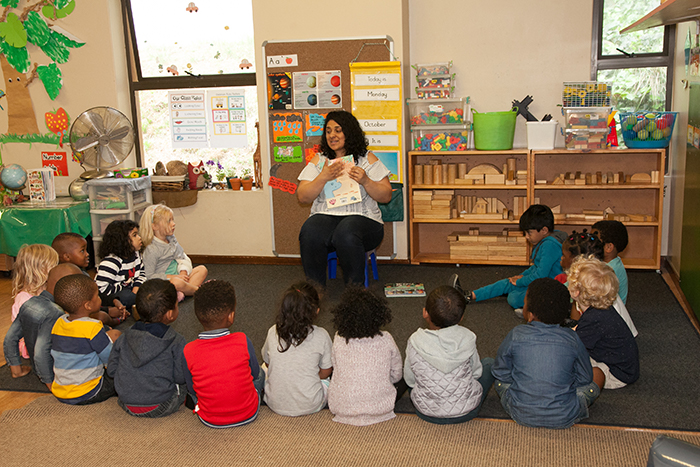
In the three- to four-year-old class, the teacher helps to promote healthy relationships between learners, where each child learns to respect and love their peers.
The teacher strives to develop effective communication by building up language skills.
Through theme work the child gains an understanding of the world and the systems within it and all learning areas.
Four- to five-year-olds
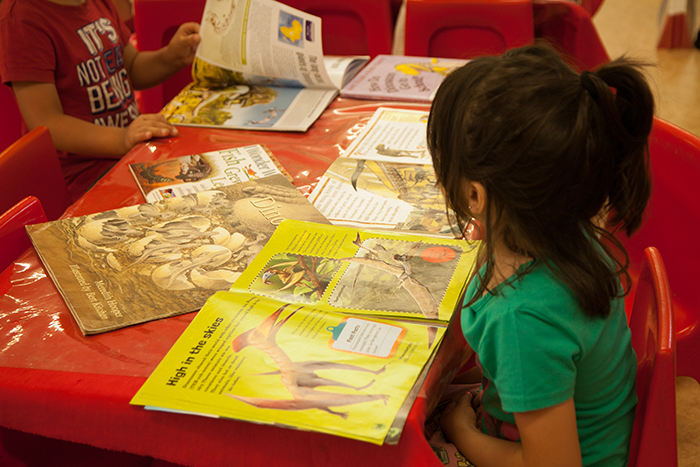
In the four- to five-year-old class the teacher encourages the children to engage in sustained play episodes in which they plan, negotiate and share responsibility and leadership.
The teachers provide opportunities through theme work for the children to experience and repeatedly practise the fundamental principles of cognitive development. The inclusion of any form of play will help the children develop their cognitive abilities and other potentialities.
Micro activities
During mid-morning outdoor play time each teacher will meet with a group consisting of 5 children for micro activity. She will plan a gross motor activity, perceptual game and an activity which the child will hone.
Micro activity is an essential part of the programme since it provides an opportunity for the teacher to assess the child in all aspects of his/her development.
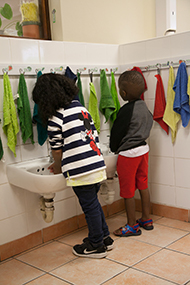
| 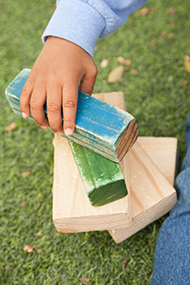
| 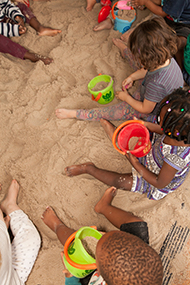
|
Assessment
Assessment is ongoing. The children are assessed on a daily basis. At the end of each term the teacher will meet with parents to discuss the development of their child.
Recommendations for assistance in any areas where developmental may be made.
Parents are issued with a written report in December for three-month to two-year-old classes as well as June and December for three- to five-year-old classes.